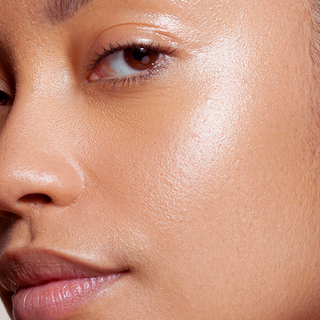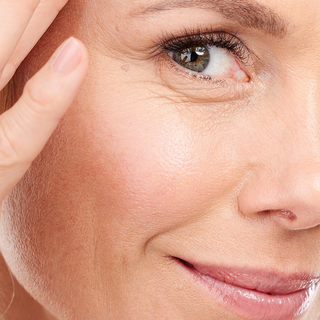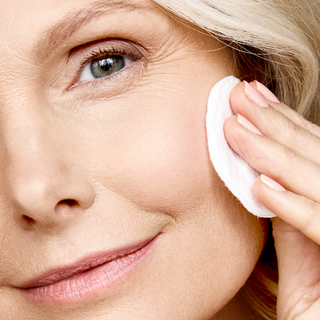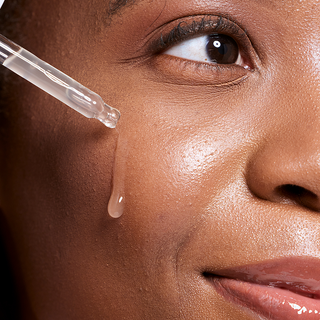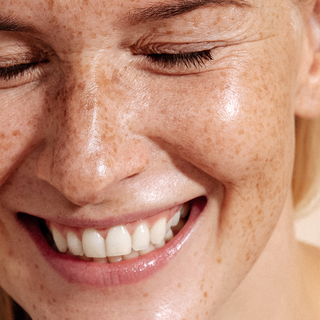Retinol is a holy grail ingredient in the skincare world and for a good reason. It’s renowned for its powerful anti-aging properties and ability to transform the skin. However, with great power comes numerous questions. In this post, we’ll cover the most frequently asked questions about retinol, helping you make informed decisions about incorporating it into your skincare routine.
Why is Retinol Drying at First?
Retinol is known to cause dryness when first used. This happens because it accelerates cell turnover, causing dead skin cells to shed more quickly. Initially, this can lead to dry patches and flakiness. Your skin may need time to adjust to this increased rate of exfoliation.
How to Mitigate Dryness:
- Start Slow: Begin with a lower concentration of retinol and gradually increase as your skin builds tolerance.
- Moisturize Generously: Use a rich, hydrating moisturizer to combat dryness.
- Limit Usage Frequency: Start by applying it once or twice a week, then gradually increase usage.
What Are the Other Side Effects?
Apart from dryness, retinol can cause several other side effects, particularly when first introduced to your skincare regimen.
Common Side Effects:
- Redness and Irritation
- Peeling and Flaking
- Sensitivity to Sunlight
To minimize these side effects, always use sunscreen daily and follow a gentle skincare routine. Always follow your retinol with a high-quality, hydrating moisturizer.
Who Should or Should Not Use Retinol?
Retinol is generally safe for most people, but knowing if it’s right for your skin type and condition is essential.
Who Should Use Retinol:
-
Individuals with aging skin looking to reduce wrinkles and fine lines.
-
People with acne-prone skin seek to minimize breakouts and clear clogged pores.
Who Should Avoid Retinol:
- Pregnant or breastfeeding women (more on this below).
- Individuals with extremely sensitive skin or conditions such as eczema or rosacea.
What is the Difference Between Retinol and Retinoids?
While often used interchangeably, retinol and retinoids are not the same. They belong to the same family but have different strengths and uses.
Retinol:
-
A milder form of vitamin A.
-
Available over-the-counter.
-
Suitable for beginners and those with sensitive skin.
Retinoids:
- A stronger, prescription-strength form of vitamin A.
- Available from medical-grade skin care brands or in prescription products.
- More effective but can also be more irritating during initial use.
Why Can’t I Use Retinol or Retinoids During Pregnancy?
Retinol and retinoids are not recommended during pregnancy due to potential risks to the developing fetus. These compounds can be absorbed through the skin and may cause birth defects.
Alternatives During Pregnancy:
- Bakuchiol – a natural, plant-based alternative with similar benefits.
- Vitamin C – offers antioxidant protection and brightens the skin.
When Should I Apply Retinol?
Timing is crucial when it comes to retinol application. Applying at night is best because retinol can make your skin more sensitive to sunlight. After cleansing and drying your face, ensure your skin is clean and dry before applying retinol. Follow with a moisturizer to lock in hydration and reduce the risk of irritation.
How to Choose a Good Retinol
Not all retinol products are created equal. Here’s what to look for to ensure you’re getting a quality product.
Key Considerations:
- Concentration: Beginners should start with a lower concentration (0.25%-0.5%) and gradually increase.
- Formulation: Look for products with stabilizing ingredients that prevent retinol from breaking down.
- Brand Reputation: Choose well-reviewed products from reputable brands.
How Long Does It Take to See Results?
Patience is key when using retinol. While it’s effective, it’s not an overnight miracle. In the first 2-4 weeks of use, you may experience dryness and irritation as your skin adjusts. After 8-12 weeks, you will see visible improvement in your skin. There will be a noticeable reduction in fine lines, improved skin texture, and clearer complexion. After 6-12 months of consistency, you will see optimal results! The significant long-term benefits start to kick in, including firmer, more youthful-looking skin.
Retinol: A Powerhouse Ingredient
Retinol is a powerhouse ingredient that can bring remarkable changes to your skin. Understanding how to use it correctly and knowing what to expect can help you make the most of this potent skincare hero. If you're new to retinol, the Overnight Youth Booster is a great place to start! The nighttime cream contains a stable and gentle retinoic acid with niacinamide to soothe skin and reduce redness.


